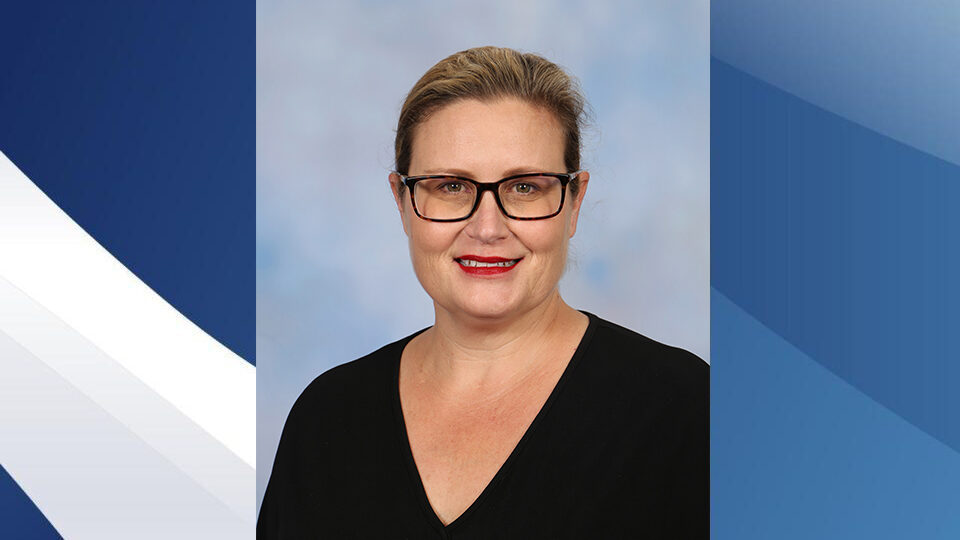
From the Leader of Wellbeing
Did you know…
 Every student at the College has been issued a Student Planner this year.
Every student at the College has been issued a Student Planner this year.- Throughout 2023 the Wellbeing Team engaged in numerous focus groups with students to create this resource for students.
- The Students Planner is compulsory for years 7-10 and at the commencement of each lesson it is to be placed on their desk in sight of the teacher and within easy access to record their homework and any work that has been set.
- During O Week students were taught how to use the Student Planner in Tutor Group and provided with time to set their year up for success and complete their Assessment Calendar for Term 1.

Throughout the following week plan and have a conversation with your daughter about her Student Planner.
Questions you may consider asking include:
- Can I please take a look at your Student Planner. How have you been using this as a tool to support you in developing your organisational skills?
- Take a look at the Assessment Schedule that appears at the commencement of each term and notice any particular busy times of the term. What is your plan to manage your time in the lead up to this week here where I can see you have 2 assessments?
- I notice you have a task due on <insert day> next week. Can you show me the task and where you are at in your planning and preparation for that? Would you like me to read over it for any spelling/grammar?
- Oh I notice that you have not completed your assessment Calendar for Term 1. We are going to take 5 minutes now and look up your assessment schedule online so that we can fill this in together. How about you look it up and tell me what tasks you have coming up and I record it for you as you watch on?
School Refusal
School refusal is very different to truancy. Truancy is when an individual does not want to attend school. School refusal occurs when a young person is experiencing emotional distress at such a significant level that they are unable to attend school, and their parents are aware that their daughter is not attending school as they have witnessed the emotional distress, usually at home.
It is getting to the why they do not want to attend school that is important.
Reasons vary from individual to individual. Some common reasons are listed below:
- experiencing social anxiety
- having been subject to bullying
- finding it difficult to concentrate
- not feeling supported by teachers and staff
- feeling excluded or ‘othered’ amongst peers
- finding it challenging to keep up with the schoolwork
- finding it challenging to build a social network and friendship circle
- finding themselves disinterested or bored with the school material and subjects
What can a parent do about School Refusal?
- Inform the College. Contact the Tutor Teacher or House Coordinator of your daughter. The Wellbeing Team at the College has a range of skills working in collaboration with parents, students and external agencies to guide students to improving their attendance. When we work together for the benefit of your daughter’s learning and wellbeing through developing a positive relationship we achieve more.
- Engage your daughter in conversations with a focus on listening to her and what she is and is not saying for the purpose of discovering the cause of the refusal to then arrange a suitable support plan that can be co-created with you, your daughter and the College as well as any external providers you have secured to help support your daughter during this time.
- If she is not seeing a therapist, seek a therapist, one who specifically works with young people – Adolescent Psychologist, Educational psychologist, This site assists individuals looking for support that is located close to home with the training and experience required to address specific areas: Find a Psychologist | APS
- Engage with your GP and keep them up to date with what is currently happening – They may discuss medication as an additional treatment pathway, however, medication alone may not be the only solution.
Once the cause has been identified – a graded exposure plan can be arranged in collaboration with us to help support your daughter in returning to school that is based on the causes leading towards the refusal. This may look like:
- returning on certain days at certain times/for certain subjects until they gradually build back up to a full time schedule.
- the College coordinating, preparing and facilitating a restorative conversation between students to clarify understanding.
- connecting with Inclusive Learning to assist in closing any gaps that may have occurred in her learning due to school refusal.
Additional Information

